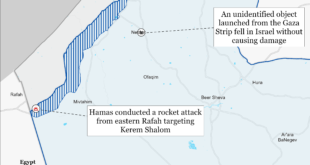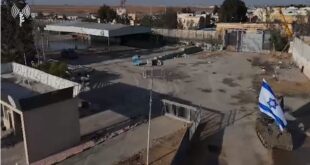Iran’s Foreign Minister Hossein Amir-Abdollahian arrived in Oman on Tuesday to meet with Foreign Minister Sayyid Badr Albusaidi as part of his Gulf tour that began in Doha.
Iran’s Foreign Minister Hossein Amir-Abdollahian landed in Kuwait on Wednesday where he met Kuwaiti Prime Minister Sheikh Ahmad Nawaf Al-Ahmad Al-Sabah.
The Iranian minister and his delegation are expected to continue their diplomatic Gulf tour to the United Arab Emirates (UAE) next as they seek trade and security deals set in motion by the landmark reconciliation with Saudi Arabia in March.
Abdollahian arrived in Oman the day before to meet with Foreign Minister Sayyid Badr Albusaidi as part of his Gulf tour that began in Doha.
What happened: Abdollahian and his delegation held talks with the Kuwaiti premier and the country’s Foreign Minister Sheikh Salem Abdullah Al Jaber Al Sabah, after already visiting Doha and Muscat earlier this week.
The parties discussed “the latest developments in the regional and international scene” in a meeting with Kuwaiti Prime Minister Sheikh Ahmed Nawaf al-Ahmed al-Sabah, according to Kuwait’s state news agency KUNA.
In Oman, the Iranian foreign minister described talks with his counterpart as “constructive and positive,” according to the state-run Oman News Agency (ONA). Their discussions resulted in agreements and memoranda of understanding to implement deals made in the areas of economic trade, transport, energy, science and tourism, Amir-Abdollahian said.
While in Muscat, Amir-Abdollahian also indicated that UN Secretary-General Antonio Guterres extended an invitation for diplomatic discussions in the United States.
“The UN secretary-general presented an initiative to hold a meeting in New York at the level of the foreign ministers of the eight countries in the Arabian Gulf region. There is also an agreement between the Omani Foreign Minister and his Qatar counterpart to continue this initiative that would lead to further strong cooperation,” said the Iranian foreign minister, as reported by ONA.
Also on Tuesday, Amir-Abdollahian met with Qatar’s Sheikh Tamim bin Hamad Al Thani to discuss improving bilateral relations between the two countries.
Before Amir-Abollahian’s Gulf tour, he held talks with his Saudi Arabian counterpart, Foreign Minister Prince Faisal bin Farhan, on Saturday in Tehran.
Why it matters: Amir-Abdollahian’s diplomatic Gulf tour comes after Iran and Saudi Arabia agreed to restore ties and reopen diplomatic missions in a surprise announcement on March 10.
The kingdom and Iran severed ties in 2016 after protesters stormed the Saudi Embassy in Tehran following the execution in Saudi Arabia of a prominent Shiite cleric.
The announcement of the reconciliation agreement brokered by China stated that security and economic cooperation deals signed more than 20 years ago would be reactivated, which has triggered a diplomatic run by Iran to revive regional agreements and uplift its struggling economy debilitated by Western sanctions.
Anna Jacobs, a senior analyst at the nonprofit organization Crisis Group, said the Iranian foreign minister’s tour shows a “clear sign” that both sides are serious about bilateral rapprochement.
“This rapprochement is not just about increasing political dialogue but also about thinking through ways to increase economic diplomacy. Sanctions are of course an obstacle to major investment, especially in oil and gas, but there is space to increase bilateral trade in ways that don’t violate sanctions,” she wrote in a tweet on Wednesday.
Jacobs said that the major difference in these talks compared to previous ones is the intention behind them.
“Both sides of the Gulf are dealing with the other in new ways and the likelihood for more bilateral political and economic coordination, as well as multilateral regional dialogue, is high,” Jacobs added in her tweet.
But other experts believe that the economic reality is different from the perceived mood of the Iranian foreign minister’s tour, with US sanctions looming over any real action.
For example, despite Saudi Investment Minister Khalid al-Fatih expressing his optimism about the economic potential of the Iran-Saudi Arabia detente in a CNBC interview last week ahead of Amir-Abollahian’s Gulf regional trip, others disagree.
Sanam Vakil, director of Chatham House’s Middle East and North Africa program, told Al-Monitor’s Jack Dutton last week that the outlook of economic deals between Saudi Arabia and Iran is more about public relations than results.
“Riyadh is dangling the carrot of investing in Iran knowing full well that sanctions will preclude any serious efforts,” she said. “Because Riyadh assumes that Iran will break the terms of the deal, it is looking to demonstrate good intentions to China and beyond while it also hopes incentives can over time build a more solid foundation.”
 Eurasia Press & News
Eurasia Press & News




